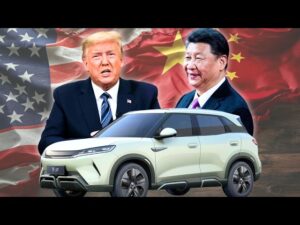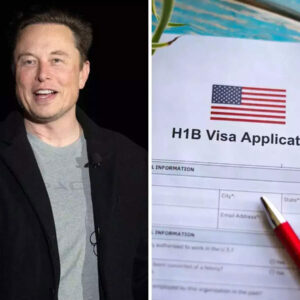Why the U.S. Is Terrified of Chinese Electric Cars

As the global race for electric vehicle (EV) dominance heats up, one major competitor is causing growing unease in the United States: Chinese electric car manufacturers. The U.S., once a clear leader in automotive innovation, is now facing serious competition from a wave of highly efficient, low-cost, and tech-forward EVs coming out of China — and it’s sparking economic, political, and national security concerns.
At the core of this fear is China’s rapid rise as an EV powerhouse. Companies like BYD, NIO, and XPeng have not only scaled production at lightning speed but are also delivering vehicles packed with cutting-edge technology at prices U.S. automakers struggle to match. BYD, for instance, has already surpassed Tesla in global EV sales during certain quarters, and it continues to expand aggressively into foreign markets.
The affordability of Chinese EVs is a major disruptor. While American EVs like the Tesla Model Y and Ford Mustang Mach-E often cost upwards of $40,000, many Chinese alternatives are being sold for significantly less — in some cases, under $20,000. With rising inflation and high interest rates hitting American consumers hard, cheaper EVs from China could flood the U.S. market and outcompete domestic offerings.
But the fear goes beyond economics. Many U.S. policymakers are concerned about national security implications. Chinese EVs are often equipped with advanced software, sensors, and internet connectivity that collect vast amounts of data. Lawmakers worry that these vehicles could be used as tools for surveillance or data harvesting, similar to the concerns that surrounded TikTok. In March 2024, the Biden administration even launched an investigation into the data practices of foreign-made smart cars, signaling how serious these concerns have become.
In response, the U.S. has increased tariffs, implemented stricter safety standards, and offered incentives to domestic EV makers. However, these efforts may not be enough to slow China’s momentum.
“Chinese automakers are not just building cars; they’re building the future of mobility,” said industry analyst Rebecca Lin. “And if the U.S. doesn’t catch up quickly, it could lose leadership in one of the most important industries of the 21st century.”
Ultimately, the rise of Chinese EVs represents more than just competition — it’s a challenge to America’s technological edge, manufacturing base, and global influence. And that’s why the U.S. is more than just wary — it’s downright terrified.





